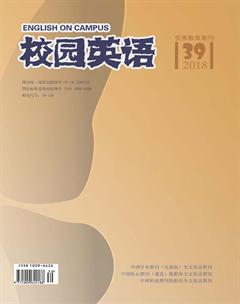On Memory Theory in English Vocabulary Learning
【Abstract】Memory theory is an important theory in cognitive psychology. If we want to enhance our English vocabulary learning, we should look at some knowledge on memory.
【Key Words】Memory; English; Vocabulary
【作者簡介】贾敏,山东工艺美术学院公共课教学部。
As one kind of psychological ability, memory is an indispensable part in the whole process of English learning. Vocabulary learning is closely related with the memory theory. If we want to know how to learning English vocabulary effectively, we should look at some knowledge on memory. A glance of the knowledge of memory can help us analyze factors affecting the efficiency of the memorizing of English words, thus enhance the results of English vocabulary learning.
I. The definition of memory
You cant make good use of memory if you dont know how it works. So lets first focus on what memory is and how it works. Memory is the ability to retain and recall what is felt, thought and experienced. Good memory embodies the following five traits: quickness, persistence, reliability, accuracy and systematics.
II. The categories of memory
According to the duration of the information in ones mind, memory can be divided into three types: sensory memory, short memory, long term memory.
In terms of sensory memory, the sense organs have a limited ability to store information about the world in a fairly unprocessed way for less than a second, rather like an afterimage. Information selected by attention from sensory memory, may pass into short term memory. Short term memory allows us to retain information long enough to use it, e.g. looking up a telephone number and remembering it long enough to dial it.
Long term memory provides the lasting retention of information and skills from minutes to a lifetime.
Here we just have to ignore sensory memory because little research about it has been carried out. So until this very moment we still dont know how to make use of it. But many early researchers in the area of memory have noted that short term memory appears to have a limited storage capacity. Miller investigated this limited capacity experimentally, referring to it as “the magical number seven, plus or minus two”. He have found that the amount of information retained can be increased by chunking the information, that is, packaging it into larger items or units, although the short term memory can still only retain 7+or–2 of these chunks. Chunking is improved if the chunks already have meaning for long term memory. Long term memory with unmeasable capacity is of great value because the English words we can use randomly are kept in this type of memory.
III. The process of memory
Memory is a complicated psychological process which includes cognition, retention, recognition and recollection. Since every link is important and essential, the deprivation of any of them will bring us disastrous consequences.
But here we only focus our attention on the beginning of memory——cognition. According to whether it is intentional, memory can be classified into voluntary memory and involuntary memory. When we refer to voluntary memory we mean the students have the clear and definite learning objectives. The clear and definite learning objectives give the students confidence and their active roles are the important ways for promoting the power of cognition. By involuntary memory we mean the memory without clear and definite objectives. Up to now, theres no farther study about this kind of memory, or its function in English learning. Yet some practical examples show that the result of the voluntary memory is better than involuntary memory.
According to the nature of the materials, the degrees one understands the materials and the approaches one uses when memorizing, memory at the link of cognition can be divided into mechanical memory and sense memory. The former refers to the memory depending merely on mechanical repetitions under the circumstance that the materials are hard to be understood. Some people think wrongly that mechanical memory has little importance. In fact sometimes some materials are very abstract, so one cant understand them temporarily. But because of some need one has to master the materials. In this case, the mechanical repetition can solve all the problems. But we cant exaggerate its function. Sense memory is the memory based on understanding. Sense memory is better than mechanical memory in terms of the memorizing speed, the duration of the retention and the effect of the recalling. In our study, the best method is to use sense memory intentionally with the supplement of mechanical memory.
Vocabulary learning is an important part of English learning. Unsatisfactory vocabulary results remind us that as language learners, it is very essential to master the knowledge of memory in order to enhance our English vocabulary learning.

